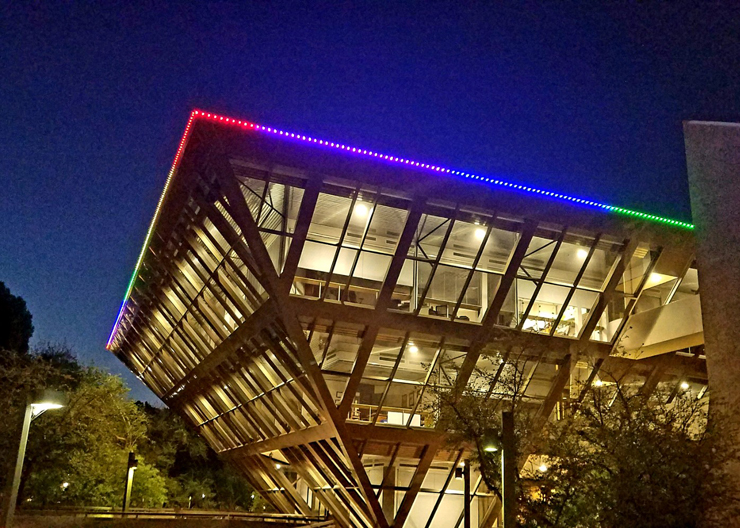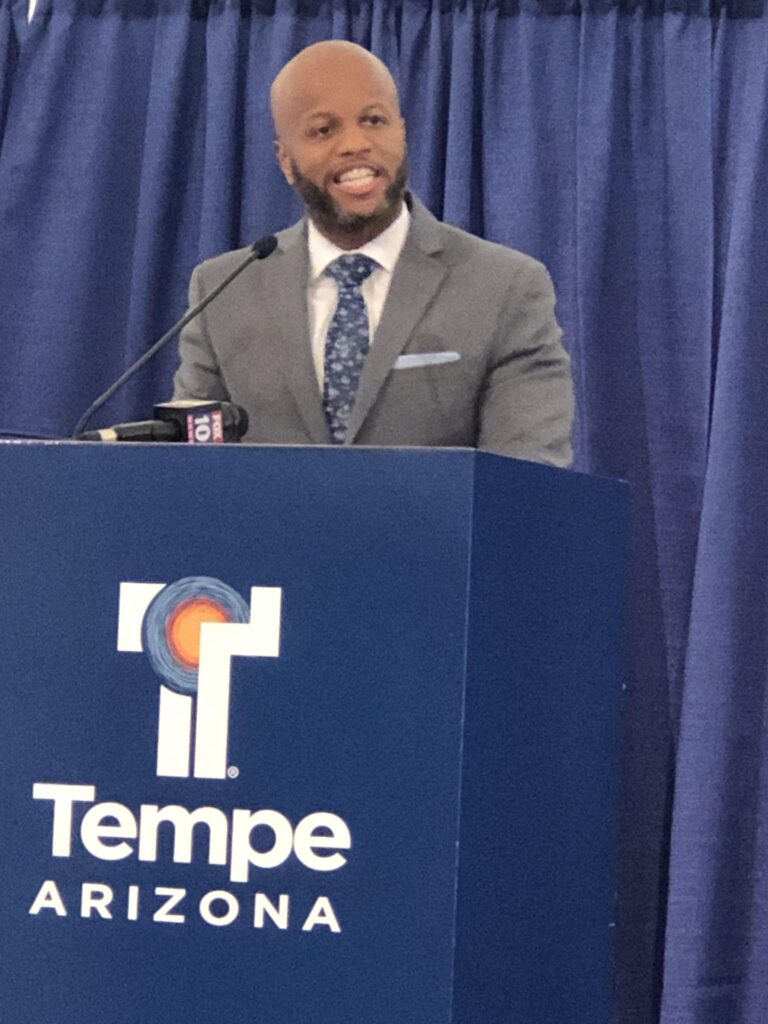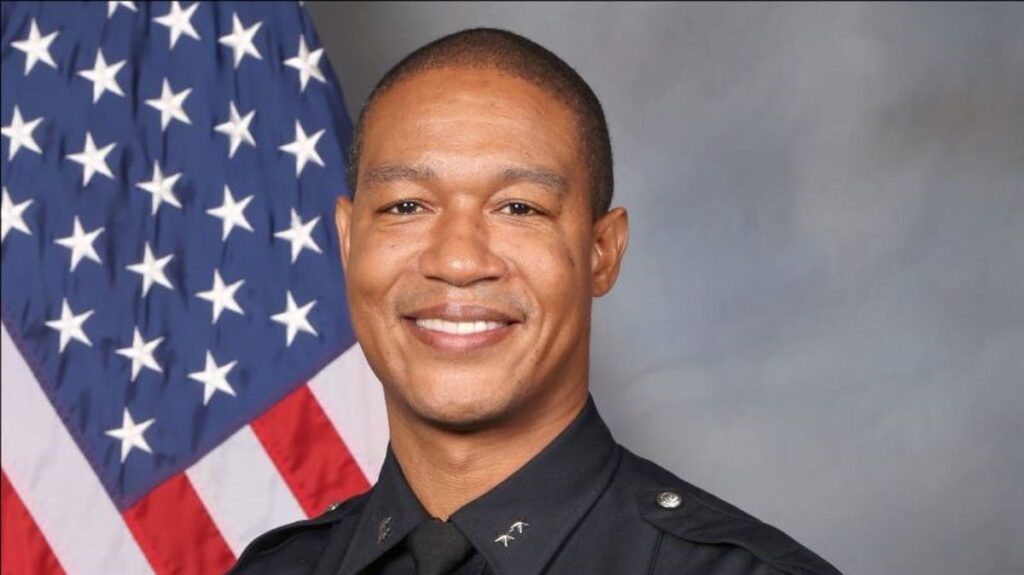
Although the Public Safety Advisory Task Force hasn’t quite completed its work and rendered its report, Tempe City Council approved $104 million for the Police Department on June 10 as it adopted a $1.2 billion budget for fiscal 2021-22.
Unlike the previous year, when there was a march on City Hall by those wanting to defund the Police Department, there was no public input or comment offered this time in favor of or opposed to any element of the new budget, and the Council adopted it unanimously.
The Public Safety Advisory Task Force is charged with taking a deep dive into the police and making recommendations on procedures that rethink approaches to community safety in the wake of social-justice concerns following several high-profile incidents involving the department that have been questioned by the public.
Social justice, systemic racism and the role of policing came into the spotlight during the past year during the COVID-19 pandemic. The task force will create a strategic plan designed to build trust, accountability and dialogue between the community and the Police Department.
The 22-member volunteer panel, which was convened last fall by Mayor Corey Woods, initially was to have six meetings through December. A seventh was added in January. In the time since, as the task force attempted to summarize material and create a draft strategic plan to present to City Council, yet another meeting of the panel was called on June 9.
The task force now plans to present its summary to City Council on June 17. The report will be made public for input after. The panel had hoped to finish the draft report early this year and get it to the Council and public for review by February.
Tempe, however, couldn’t wait. It is required by state law to have a budget adopted and property-tax levy approved for the coming fiscal year before July 1. The tax levy sign-off is scheduled for June 24.

Woods said the task force’s delay did not present problems in establishing funding for the Police Department for the coming year.
“At the end of the day, it might have been ideal to have had the task force report done before we got into the budget season, but internally our goal was not to worry as much about speed as about getting things right,” Woods said. “So with the task force report, we want to take our time, make sure that we are accurately collecting input and feedback from the 22 task force members, and producing a report that was truly representative of those seven meeting over a period of about three months.
“But it did not pose problems with regard to figuring out budgeting for the Police Department or any other department for this coming fiscal year.”
The budget allocation of $103.8 million for the Police Department is an increase of about $7 million from the previous year.
“There were eight full-time positions restored to the Police Department that were previously frozen as a result of the pandemic and some of the budgetary challenges that caused,” Woods said.
The budget overall casts an eye toward Tempe’s continuing morph into a high-density, urban municipality.
“One of the things we’re looking at is what staffing in all departments, not just the police, should look like,” Woods said. “Obviously, for a city of probably over 200,000 when the new Census numbers come in, we are a net importer of jobs; we’ve got Arizona State University, the nation’s largest public university, right in our backyard; we’re obviously special events-friendly and we’re obviously a city getting more dense and taller, especially in our downtown.
“We have to take those things into account when we look at what the staffing levels should look like moving forward. I’m confident in our city manager, Andrew Ching, and our police chief, Jeff Glover, to look at those things and make recommendations.”
As of last month, Tempe still had 50 full-time positions frozen from its belt-tightening caused by the COVID-19 pandemic. About 495 part-time workers were furloughed.
“We’re attempting to build in a lot of flexibility within our budget, so as we talk to the various departments and listen to our residents we are able to make changes during the year if necessary,” Woods said. “We budgeted very conservatively last year with the pandemic. We’re fortunate that things didn’t end up as bad as they could have been and we are beginning to see economic recovery and rebound. So there is heavy contingency funding built into the budget this year to allow us to make adjustments as we see necessary.”
Tempe is scheduled to receive $46 million – $23 million this year and $23 million next – in federal COVID-19 relief money. There could, however, be strict guidance from the federal government about how that money can be spent, so the city is being careful how it plans for those funds, according to the mayor.
Woods acknowledged that the Police Department, along with all departments, was asked this past year to do more with less.
“You can only do that for so long,” Woods said. “It is important that we look for efficiencies. We’ve had to be creative and innovative and figure out how to do this work in different ways, so the staffing structure may change a little bit as we emerge from the pandemic.
“We do recognize that a lot of departments really are in need of additional people to make sure they can do their jobs and also can do the business of our residents.”
Public Safety Task Force continues grind
During its June 9 meeting, the task force discussed the need for greater transparency for the public in memorandums of understanding between police unions and the city; family and victim bill of rights in interactions with officers; conduct on the job, specifically use of profanity, by officers; implementation of a crisis-response team, in which a mental-health professional might accompany an officer to certain calls for service; recruiting and retention of officers, especially officers of color; whether racism is imbedded in traffic stops, and the role of school-resource officers on campuses.

“We can acknowledge that there have been trauma and issues in policing, as we all know,” Glover said. “We also have to build relationships and engage with the population, with the community. We are part of the community. The community has a say in how we interact and what we do. It is important to acknowledge these issues, but it’s also important to stay engaged to be able to bridge those gaps.
“We can learn from each other. That’s how we learn. Learn from those mistakes made. That’s how we move forward together.”
The task force discussed whether police should be the first responders to calls for service that involve mental health and homelessness, among other calls that are not considered traditional policing.
“I’ve had those conversations with police officers and they said that exact same thing, that they got into the police academy to fight crime, to focus on violent crime and things of that nature,” Woods said. “Part of the task force’s work was talking about a lot of these things: What functions are core police functions? Some other issues might end up in the future being addressed by a human-services division. When I talk to our police officers, they’ve been very much in support of getting back to what they consider to be the core function of policing and moving other items to a different department where those folks have a different kind of training.”


task force includes many who don’t live in Tempe. their opinion is useless.